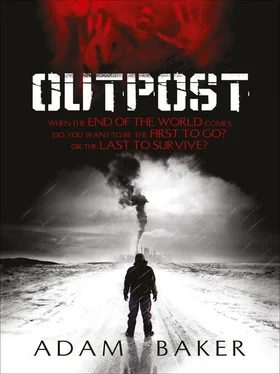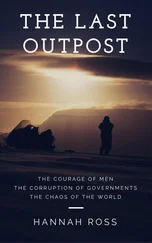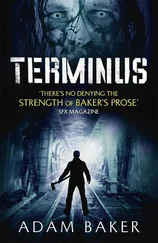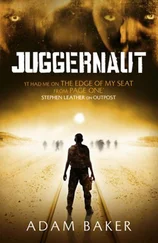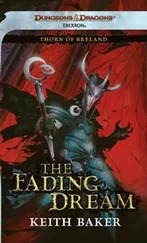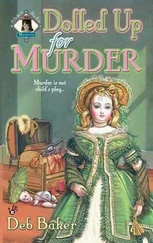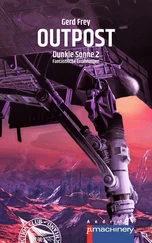Rye was overcome by loneliness. She leaned against the wall and wept.
The casino. A plush, Monte Carlo gambling den. A couple of roulette wheels, a craps table and a bar.
A showgirl lay dead and rotting on the floor. Sequins and pink ostrich plumes. A pulped mess where her head used to be.
Rye stepped over the body and approached five men sitting round a blackjack table. They wore ripped and bloody dinner jackets. One man was so far gone he was virtually a pillar of dripping metal. He was fused rigid and would clearly never leave his chair again. The croupier was slumped like he had fallen asleep. His head had melted into the table. The other men retained movement in their arms. There were cards and chips scattered on the green baize. The least inhuman of the bunch, a passenger who still retained half a face, acted as dealer.
‘Ah,’ he said. ‘Fresh blood.’
Rye took a seat at the table.
‘Ready to lose your money?’ asked the dealer, shuffling his cards.
‘It’s nice to hear another sane voice.’
‘This thing, this contagion, seems to strike people different ways, as you have evidently discovered. Some people die outright. Not sure why. One bite and they keel over. Must be like a peanut allergy. But sometimes, if you’re unlucky, it takes your body but not your mind. You’re not one of the passengers, are you? I don’t think I’ve seen you before.’
‘I’m from an oil refinery near here.’
‘The ship ran aground?’
‘Yeah.’
‘Do you know what is happening out there in the world?’
‘No,’ said Rye. ‘Not a thing. You?’
‘Nothing. Just rumours. We circled for weeks trying to find a port. Then there was an outbreak. It must have been with us all along. An infected crew member perhaps, hiding the disease from his colleagues. Who knows? Who cares? Here we are, waiting for the end to come. The cowards. The ones too chicken to slit our throats or leap into the sea. Doomed to live.’ The dealer shuffled cards. ‘Have you ever played blackjack?’ he asked.
‘It seems like a good time to learn.’
Rye saw men and women suffer and die during her time on a cancer ward. Most accepted the end of their lives with stoic resignation. Youngsters calmly faced death even though they had yet to live. Joked as they were wheeled into the operating theatre, joked as they got shot full of chemotherapy or blasted with radiation.
Rye knew she was a coward. She wanted to die, but it had to be quick and painless. She had seen scalpels scattered on the floor of the medical bay. She should have put a blade to her eye and punched it into her brain, but couldn’t bring herself to do it. She wanted an easy exit. She wanted to slide into unbeing like she was drifting off to sleep.
Rye searched the ship for the means to kill herself.
She found shelves of barbecue equipment in a kitchen cupboard. She pictured Hyperion chefs organising a spit roast for the passengers. Handing roast pork baguettes to rich clientele as they stood in anoraks watching whales break water in the distance.
Rye toyed with the idea of releasing a propane valve then striking a match, but was too scared to go through with the plan. What if she didn’t die? The fireball from a couple of tanks would quickly dissipate. She might sustain third-degree burns. Lie immobile in a delirium of pain. She knew, from her own experiments, that a person subject to advanced-stage infection was tough to kill. It might take her days to die.
She found some extension cable but the cord was too thick to make a noose. She wished she had a gun. If she had a pistol she could sit at a window, press the barrel to her temple, then distract herself by studying the view. She could try to name the constellations and, as she did so, casually switch off the world like it was a TV show that no longer held her interest.
A wasted life. Lousy doctor, lousy parent. Easy to blame the drugs, but her life was a downward spiral long before the first taste of codeine. A debilitating malaise that dogged her since childhood. Each day poisoned by a deep conviction that nothing was worthwhile. No matter where she went, or what she did, she could never quite bring herself to give a shit. But maybe there was something she could do. A final moment in which she could vindicate her life.
She, of all the Rampart crew, could pass through the liner with impunity. If the shambling mutants saw Jane or Ghost they would seize them and tear them apart. Yet when Rye walked by they seemed unaware of her existence. Rye could wave a hand in front of their faces, click fingers, push them around. They didn’t react.
So maybe she should exploit her freedom to move around the ship and build a bomb. She had already found a cache of propane tanks. There must be reserves of diesel somewhere aboard. She still had a radio. She could warn the Rampart crew. Give them time to evacuate. Open the tanks, release the valves, flood the plant rooms with fuel then strike a match. There were a few Hyperion passengers out on the ice, but most were aboard the liner. She could incinerate them all. Fry the ship. Cleanse the island. And end her own life in an instant. An explosion of that magnitude would be instant extinction. The Rampart crew would watch from the rig. They would see the blast. They would appreciate the gesture. After all, Hyperion seemed beached for good. If it blew sky high, she would die a hero.
Woozy logic. A little voice warning that she wasn’t thinking straight. She was spiralling into fantasy. She would get everyone killed.
Rye looked for the diesel tanks.
She found a multilingual brochure. ‘ Hyperion – Queen of the Seas’. A fold-out floor plan. She headed for the Staff Only plant zones of the ship.
She saw a man sliding along a corridor wall. He was shirtless. His back was a mass of spines. The eartips of a stethoscope hung from his trouser pocket.
‘Doc? Doctor? Can you hear me?’
No response.
‘My name is Rye. I’m a doctor too. What’s your name? Can you hear me? Can you tell me your name?’
The man slowly turned to face her.
‘What’s your name? Tell me your name.’
‘Walczak. My name is Walczak.’
They sat in the stalls of the ship’s cinema. A ripped screen framed by a proscenium arch.
‘For a while I thought we had it contained,’ he said. ‘We locked infected passengers and crewmen in the clinic. We had them quarantined. But people didn’t want to hand over their relatives. They didn’t want to see them locked up with the screamers we had strapped to the beds. So they hid them in their cabins. Sons and daughters. Husbands and wives. Gave them aspirin, brought them meals, hoped they would get better. That’s how the virus spread. We formed a posse. A couple of officers, a few crewmen. We knocked on doors. Took people by force. Plenty of anger, plenty of kicking and screaming.
‘It was the same when it turned to war. Battles in the corridors, on the decks. Guys would confront a gang of infected people, all set to hack and burn, then realise their own wives and children were among the crowd. What would you do? Would you kill your children if it came down to it? I mean, do you have kids?’
‘Yeah,’ said Rye. ‘I have a son.’
They walked to the Grand Lobby.
‘This is where it kicked off,’ said Walczak. ‘This is where the carnage truly began. Everyone gathered for a banquet. Trying to forget their troubles. About thirty infected passengers broke out of the infirmary and headed this way. Blood everywhere. Stampede. It was mayhem. That was the point we lost control.’
Rye looked around. Upturned tables and chairs. Infected waitresses stumbled over broken crockery and flowers.
‘Could you do me a favour?’ asked Walczak.
Читать дальше
